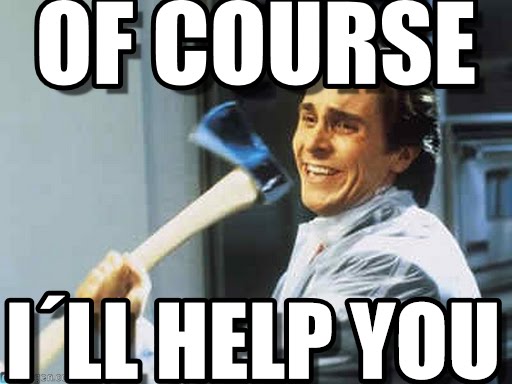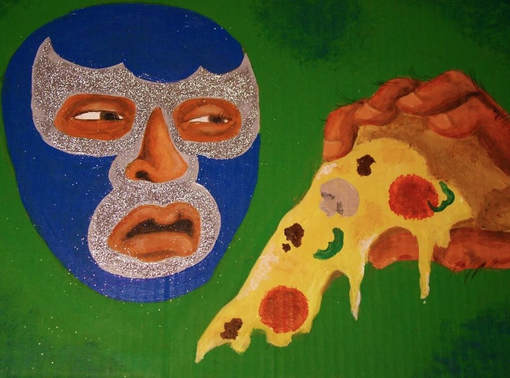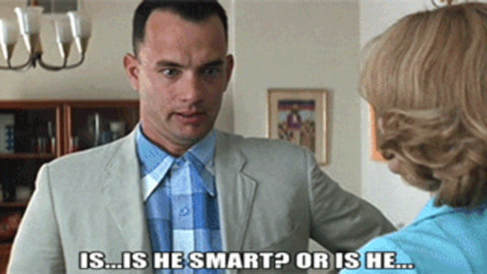 How does an organization create a culture of helpfulness? How does an organization create a culture of helpfulness? Why don’t business leaders, entrepreneurs and employees ask for help? No one wants to appear weak “I don’t need help.” People in a position of leadership have to take a hard look at whether the culture they are building is conducive to facilitating team members feeling comfortable asking for help. Does the leadership team at the corporate office lead by example in asking for help? Do local managers ask their teams for help? When was the last time someone on the team asked for help? If our organization's culture has the bravado where if you can’t hack it then don’t let the door hit you on the backside, we will not hear anyone asking for help. This environment is expressed in much more subtle ways as well, wherein the organization does not exemplify how to ask for help or create avenues for team members to reach out without repercussions (real or perceived). Five questions that can help us build a culture that is conducive to collaboration:
No one wants to be overrun “I need help, but…” Perhaps people are asking for help but they are not getting a positive response. We have to be mindful as well as intentional to create a culture where asking for help does not lead to exclusion or imperialism. Being mindful and intentional with how we address a request for help starts something as simple as paying attention, management expert Tom Peters reminds us to ask the question, “Do I make eye contact 100 percent of the time?” Being positive and approachable, as mentioned above, could start with the act of putting our phones down, making eye contact and giving 100 percent of our attention to whomever we are interacting with. Imperialism is the expansion of power through brute force or diplomacy. In the work place there are hostile takeovers of another’s position, the scenario where someone is asked for help or told that they need help and then they are steamrolled by the one providing assistance. “I was just trying to help,” the imperialist will say, and they may believe they have the best intentions but their process does not lead to independence for the workmate that they are “helping”. Exclusion is much more subtle as is imperialism by diplomacy. On paper or to the outside world, exclusion may appear like assistance but it nets the same result as a takeover it is just done with a bit more savvy. When the person asking for help is subtly pushed out of their role or responsibility then the process of exclusion has begun. Many well-intentioned leaders are guilty of taking over the kitchen rather than teaching their employees how to bake bread. Assistance should lead to independence rather than dependence or takeover. Many organizations create internal competitiveness which may build towards growth goals but if not managed with the correct environment could suffer greatly in lack of internal collaboration. Working together to make the whole team stronger allows us to compete and collaborate. We should remember to listen before we speak and listen longer than we think we should. Listening unlocks doors and removes bricks in those walls that have created barriers to interaction. If employees perceive leadership and the culture as one that is not open to being helpful then they will not engage in seeking assistance. No one ever taught us how to ask for help “I don’t know who or how to ask for help.” We cannot take it for granted that everyone knows how to ask for help or to whom they would go for help. This could be a significant gap both in the onboarding process as well as the ongoing development of the team – who can help you when you need it. There may be people asking for help they just may not be clear about communicating what their needs are. If people approach the boss but they are always busy or appear too busy, opportunities may be missed. If people have reached out but they were shot down, ignored or even scorned, opportunities are definitely being missed. Raising our emotional intelligence (EQ) allows us to understand that perception is a tricky thing and it often overrules reality so it is important that those in a position of leadership are intentional about interacting with their teams in positive ways to open up channels of communication. In a training outline from McKinsey & Company on how to take charge without taking over, they recommend that new leaders or teams in a process of change should, “Keep all messages explicitly positive and defer all penalties until it is clear that positive behavior will not emerge without them.” If you are trying to create a culture of collaboration - start with listening. Start listening with purpose with a little help from Lola. If you are in need of some help and mentorship - own your mistakes and consult with a trusted source. IZ Ventures - more than business coaching and consulting, we help you connect, collaborate and conquer.
0 Comments
 Pizza battle, pizza libre Pizza battle, pizza libre Would you like a slice of controversy pie? A lesson in how leaders call out leaders. According to ESPN, the official pizza sponsor of the National Football League (NFL) is upset that the organization has yet to get their employees under control. "The NFL has hurt us," company founder and CEO John Schnatter said. "We are disappointed the NFL and its leadership did not resolve this (Rovell, 2017).” The pizza company has been hurt and the culprit is a lack of leadership. So, like a true leader the pizza chain mogul pulls out the strong arm of blame. As izvents readers (by the tens) will recall, we recognize blame (more) as a sign of true and enduring leadership. Blame is always a recipe for success and often an indication of a parties investment in finding a solution. Tell us John, how do leaders respond to a lack of leadership? Oh, the answer is sternly worded statements. "Leadership starts at the top, and this is an example of poor leadership," Schnatter said. Papa John’s has been the esteemed official sponsor of the NFL for the last two years, a position they earned by beating out the steep competition through valor, ethical behavior and a commitment to core values shared between the like hearted organizations. (Newsflash noises) This just in, our previous statement was in error, after much research we lament to inform our readers that the origins of their status as official pizza of the NFL was due to their financial investment in the organization and that alone. Papa’s has an official relationship to the NFL and they have benefited for years from that connection, so much so that they are fearful that their recent profit declines will be ongoing if their partner doesn’t get it together and “nip things in the bud”. That sounds like teamwork, the definition of which is always having someone else to blame. Like the saying goes, when the pizza profits hit the fan, blame the NFL. You’re not supposed to quote yourself, but it seems appropriate to dust off an old saying – for as smart as you are, you sure are stupid (more). Not the least of which to mention how socially tone deaf these statements come across. Rather than assist their partner in finding solution, Papa John’s takes a view above the fray and casts their stones into the mix. "We are disappointed the NFL did not resolve this." Yeah NFL, how come you haven't solved racial disparities in America? Oh wait...by "resolve this" we mean declining profits, not that we want America to fulfill "liberty & justice for all. What is humorous is that in the battle of Papa John’s versus the National Football League, the person in a position of leadership for Papa’s notes a lack of leadership as the core of the issue. In doing so, like so many of us learning to live out leadership on the daily, John fails to recognize the void in his own leadership. In moments like these we need the words of the sage of inspirational leadership Michael Jackson, “I’m starting with the man in the mirror. I’m asking him to change his ways.” When faced with an issue, blame isolates us from those whom we could collaborate with to find a solution and conquer the situation. We could use less statements and more action. If a statement is warranted, it’s advisable to take a deep breath and a step back before going public as there are layers to everything. Observations, 3 in jest and 3 that are rather practical:
Reference: Rovell, D. (Nov 1, 2017) Papa John’s says anthem protests are hurting deal with NFL. ESPN Retrieved from - http://www.espn.com/nfl/story/_/id/21250448/nfl-sponsor-papa-john-not-happy-anthem-protests  Originally published as Team Dynamics: When Smart People Act Stupid In Business, January 24, 2017 in Young, Fabulous and Self Employed (YFS). By Jon Isaacson Intelligence does not always translate into savvy — especially when it relates to interpersonal dynamics within a team. As a leader or manager (or whatever crafty title you’ve come up with to make corralling employees sound less bureaucratic), understanding and succeeding with humans will always be an evolving process. Too often, smart people act in very stupid ways when dealing with others. As noted in his book, Organizational Physics: The Science of Growing a Business, Lex Sisney outlines that the principles of “survival of the fittest” (a phrase that originated from Darwinian theory) was not about being the strongest or the smartest, but about being the best able to adapt to a given environment. Adaptation at its most primal level is about survival. We observe in nature and in business that it is not always the smartest or strongest or the fittest for the role that rise to the highest levels of leadership. There is no executive level leader who has not risen in the ranks without earning it in some way. We may disagree with their qualifications, but someone at some level who had authority found them fit for the role. If you live your life frustrated by who is in power you will always be in turmoil. To rail against the system in a manner that changes nothing and only makes you bitter is a recipe for an aneurysm. If you don’t understand by now, power is not about being the strongest, smartest or even the most qualified. If you think this – for as smart as you are, you sure are stupid. Power dynamics in business Continuing with the things observed in nature that apply to business, let’s move from the macro observations of power dynamics into the individual level of dealing with those people in your immediate sphere of influence. If you know someone that you consistently butt heads with and find yourself frustrated with how they interpret and act upon conversations, you must understand that a leopard doesn’t change its spots. Often the schism is related to communication which requires listening, interpretation and implementation. One’s ability to understand is impacted by perspective and it is a statistical improbability that any two persons share 100% perspective alignment so there will always be a level of variance between how two people interpret a situation or conversation. You will not wake up tomorrow and somehow make a 180 degree turn in how you see the world; so don’t expect others to either. Most interpersonal friction is related to an expectation that the other party can see things in the same way and will arrive at the same conclusion. If you expect this – for as smart as you are, you sure are stupid. So, what do we do then? Are you giving away your power?First, understand that you are a leopard and that everyone else is a leopard as well. A leopard will not change it’s spots. At a base level individuals are not going to drastically change from who they are, how they see the world and how they respond to their environment. Understanding yourself as a leopard and those you interact with as leopards will not solve your conflicts, but it will at least provide some perspective on the expectations you place on those relationships. Secondly, survival requires adaptation. If you are in a truly toxic environment the smartest thing to do is to find a new environment. If you are in an environment that has it’s ups and downs, but overall is an area that you feel you can make a positive impact in, then you will need to learn to adapt. Learning the language, culture and dynamics of your chosen environment is essential to your ability to thrive in any situation. No one takes your power, no one can squeeze the life out of you, you choose how you allow people and situations to impact you. Confidently be your leopard self, stop being so functionally stupid and start adapting to your environment. Thirdly, there is value in utilizing some of the many frameworks available for understanding and gaining perspective on those around you. Whether you are experiencing conflict within your team or not, investing in personality profiles and related tools can help create pathways for common language in working together. As mentioned above, in Organizational Physics, Lex Sisney proposes that people are producers, stabilizers, innovators and/or unifiers (PSIU). Understanding where your leopard lines up in the characteristics of PSIU will help you better recognize your motivations, needs and sources of conflict as well as those characteristics in others. There is no simple fix to human interactions, leopards have been roaring, clawing and biting other leopards for ages. If you aren’t doing something intentional to better the situation – for as smart as you are, you sure are stupid. Struggling with recruitment of new talent to strengthen your team? Why do we keep going to the same well expecting it to no longer be dry? Hiring from a short list within an industry bubble does not create a lot of room for introduction of new ideas, perspectives and strengths.
Read more on this topic, article HERE. |
AuthorThoughts on personal and professional development. Jon Isaacson, The Intentional Restorer, is a contractor, author, and host of The DYOJO Podcast. The goal of The DYOJO is to help growth-minded restoration professionals shorten their DANG learning curve for personal and professional development. You can watch The DYOJO Podcast on YouTube on Thursdays or listen on your favorite podcast platform.
Archives
March 2023
Categories
All
<script type="text/javascript" src="//downloads.mailchimp.com/js/signup-forms/popup/unique-methods/embed.js" data-dojo-config="usePlainJson: true, isDebug: false"></script><script type="text/javascript">window.dojoRequire(["mojo/signup-forms/Loader"], function(L) { L.start({"baseUrl":"mc.us5.list-manage.com","uuid":"b9016446bd3c6a9f0bd835d4e","lid":"83282ffb9e","uniqueMethods":true}) })</script>
|
Jon Isaacson |
Connect. Collaborate. Conquer.
© COPYRIGHT 2015. ALL RIGHTS RESERVED.
|



 RSS Feed
RSS Feed